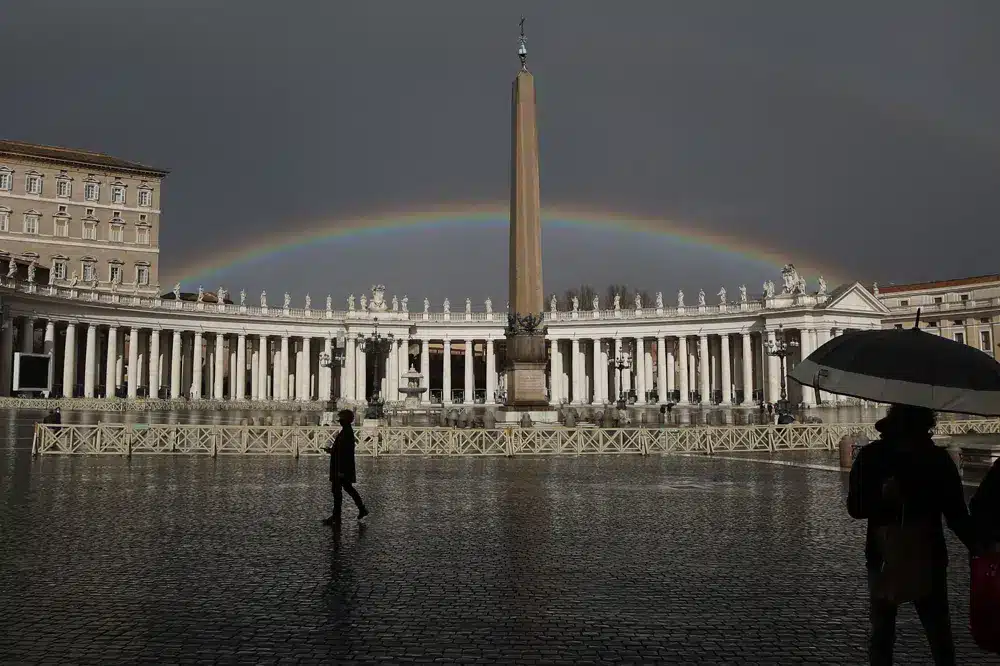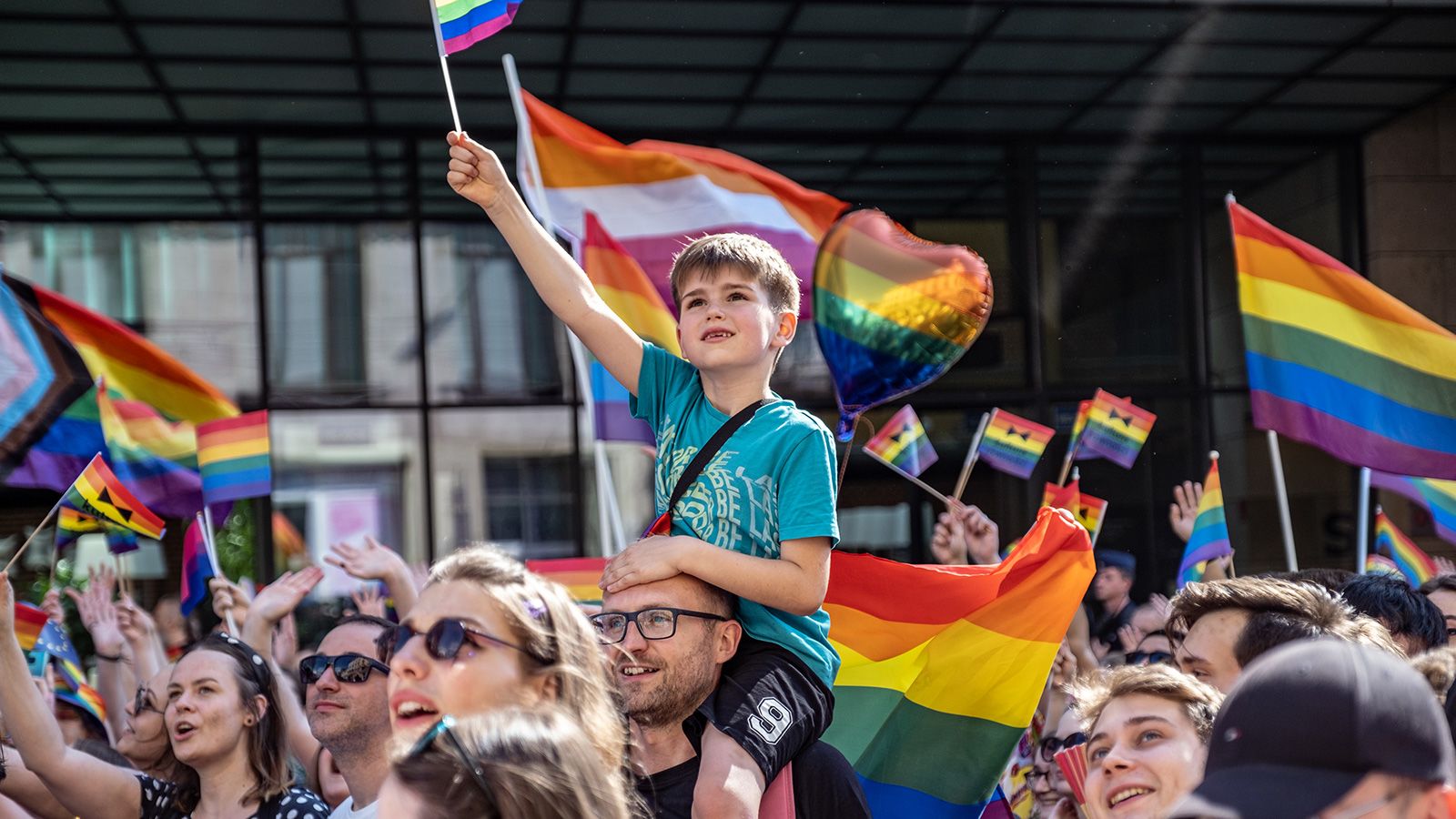VATICAN CITY, Italy — Pope Francis called homosexuality laws “unjust,” saying God loves all his children exactly as they are and urging Catholic bishops who support the laws to welcome L.G.B.T.Q. People into the church.
“Being homosexual is not a crime,” Francis said in an exclusive interview on Tuesday.
Francis acknowledged that some Catholic bishops worldwide support laws that criminalize homosexuality or discriminate against L.G.B.T.Q. people and he referred to the issue as “sin.” But he said that these ways of thinking were rooted in culture and that bishops in particular needed to change in order to see the worth in everyone.
“These bishops must go through a conversion process,” he said, adding that they must show “tenderness, please, as God has for each of us.”
Francis’ remarks, which gay rights activists hailed as a watershed moment, were the first made by a pope about such laws. They are, however, consistent with his overall approach to L.G.B.T.Q. He believes that the Catholic Church should welcome all people without discrimination.
The Human Dignity Trust, an organization that works to get rid of these kinds of laws, says that 67 countries or jurisdictions around the world criminalize consensual same-sex sexual activity. Eleven of these countries or jurisdictions can or do give the death penalty. According to experts, even when laws are not enforced, they contribute to harassment, stigma, and violence against L.G.B.T.Q. People.
Antiquated Laws To Justify Harassment
Despite a 2003 Supreme Court ruling declaring anti-sodomy laws unconstitutional, more than a dozen states still have them on the books. Gay rights activists say the antiquated laws are being used to justify harassment, and they point to new legislation, such as Florida’s “Don’t say gay” law, which prohibits instruction on sexual orientation and gender identity in kindergarten through third grade, as evidence of ongoing efforts to marginalize L.G.B.T.Q. People.
Homosexuality is not a crime, according to Pope Francis.
The United Nations has repeatedly called for an end to laws that criminalize homosexuality outright, claiming that they violate the rights to privacy and freedom from discrimination and are a violation of countries’ international legal obligations to protect the human rights of all people, regardless of their sexual orientation or gender identity.
Francis called such laws “unjust” and said the Catholic Church could and should work to end them. “It has to do this. “It has to do this,” he stated.
The Catechism of the Catholic Church says that gay people should be welcomed and treated with respect. They should not be pushed to the side or treated badly.
“God Loves All” Pope Says
“We are all God’s children, and God loves us for who we are and for the strength with which each of us fights for our dignity,” Francis told the Associated Press in the Vatican hotel where he is staying.
Francis’ remarks come ahead of a trip to Africa, where such laws, like those in the Middle East, are common. Many are from the British colonial era or are influenced by Islamic law. Some Catholic bishops strongly supported them as being consistent with Vatican teaching, while others called for their repeal as a violation of basic human dignity.
In 2019, Francis was expected to say something against making homosexuality a crime during a meeting with human rights groups that studied the effects of such laws and so-called “conversion therapies.”
In the end, the pope did not meet with the groups after word of the audience leaked. Instead, Vatican No. 2 reaffirmed “the dignity of every human being and the prohibition of all forms of violence.”
There was no indication that Francis was now speaking out against such laws because his more conservative predecessor, Pope Benedict XVI, died recently. The subject had never been raised in an interview before, but Francis eagerly responded, citing statistics about the number of countries where homosexuality is illegal.
A Difference Between Crime And Sin
Pope Francis said on Tuesday that there should be a difference between a crime and a sin when it comes to homosexuality. According to church teaching, homosexual acts are sinful or “intrinsically disordered,” but gay people must be treated with dignity and respect.
While joking with himself, Francis stated, “It’s not a crime. True, but it is a sin. Okay, but first, let’s define the difference between a sin and a crime.”
“It’s also a sin not to be charitable to one another,” he added.
Francis has not changed the church’s teaching on homosexuality, which has long enraged gay Catholics. However, he has made reaching out to L.G.B.T.Q. People a hallmark of his pontificate.
Although the pope’s remarks did not specifically address transgender or nonbinary people, only homosexuality, advocates for greater L.G.B.T.Q and inclusion in the Catholic Church hailed the pope’s remarks as a watershed moment.
A Message To World Leaders
“His historic statement should send a message to world leaders and millions of Catholics worldwide: L.G.B.T.Q. People deserve to live in a world free of violence and condemnation, with more kindness and understanding,” said Sarah Kate Ellis, president and C.E.O. of the G.L.A.A.D. advocacy group in the United States.
According to New Ways Ministry, a Catholic L.G.B.T.Q. Advocacy groups and the church hierarchy’s silence on such laws have had disastrous consequences, perpetuating such policies and fueling violent rhetoric against L.G.B.T.Q. People.
“The pope is reminding the church that how people treat one another in the social world is far more morally important than what people may do in the privacy of a bedroom,” said the group’s executive director, Francis DeBernardo, in a statement.
One of the cardinals recently appointed by the Pope, Bishop Robert McElroy of San Diego, is among those Catholics who want the church to go even further and fully welcome L.G.B.T.Q. People, even if they are sexually active.
No Room For Hatred
“It is a demonic mystery of the human soul why so many men and women have a profound and visceral animus toward members of the L.G.B.T. communities,” McElroy wrote in the Jesuit publication America on Tuesday. “In the face of bigotry, the church’s primary witness must be one of embrace rather than distance or condemnation.”
Pope Francis has repeatedly and publicly ministered to the gay and transgender communities, beginning with his famous 2013 declaration, “Who am I to judge?” when asked about a purportedly gay priest. As archbishop of Buenos Aires, he advocated for legal protections for same-sex couples rather than approving gay marriage, which Catholic doctrine forbids.
Despite such outreach, the Catholic gay community chastised Francis for a 2021 decree from the Vatican’s doctrine office that stated the church could not bless same-sex unions.
In 2008, the Vatican refused to sign a United Nations declaration calling for decriminalizing homosexuality, claiming that the text went beyond its original scope. The Vatican urged countries at the time to avoid “unjust discrimination” against gay people and to abolish penalties against them.
SOURCE – (AP)














